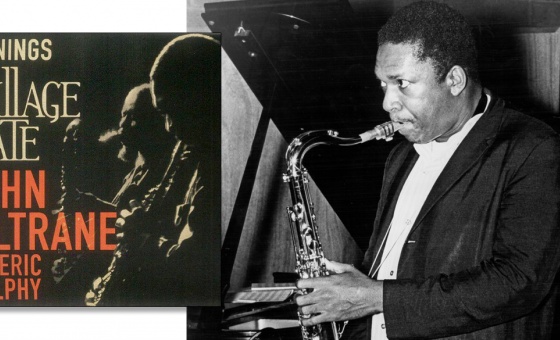This is the last article you can read this month
You can read more article this month
You can read more articles this month
Sorry your limit is up for this month
Reset on:
Please help support the Morning Star by subscribing here
Gerald Cleaver, William Parker and Craig Taborn
Farmers by Nature
(AUM 053)
Out of This World's
Distortions (AUM 067)
"Farmers by nature," they call themselves, forging furrows of notes, sowing seeds of outrageous harmony, harvesting the sounds of improvised brilliance - quite a threesome of jazz virtuosity.
From the earth of their first album its title became the trio's baptismal name on their second, as if the magic itself comes before everything and writes out its makers' life-giving function and name - as, of course, it does.
Gerald Cleaver is a drummer of Detroit born in 1963, and a University of Michigan companion of the pianist Craig Taborn, born in Minneapolis in 1970 with a youth also spent in Motown and a keyboard collaborator with some of his era's great horns, beginning with multi-reedman James Carter in the mid-'90s.
And finally the nonpareil of contemporary bass, William Parker, born in 1952 in the Bronx and featured on hundreds of recorded sessions since the '70s, truly one of jazz's great heartbeats.
These are the farmers and their sonic agriculture is produced by three equals of the soil of sound. There are no mere "accompanists" here, neither bass nor drums are being led by a star pianist or take any lesser role than the piano in the making of the music.
Although it was Cleaver who convened the trio, co-operation is all and as the sessions progress it is clear that leadership is in a constant process of enactment, exchange, initiative and integration, taking and giving in a continuous threefold act of creation and surprise.
The first eponymous album was recorded live at The Stone in New York City in June 2008. You can hear every iota of sound from the off, every jot.
The texture and echo of a real venue, the muttering, the whispers, the taps, the human clues, the timbre of musical message and witness in every second.
The pluck of the deep strings, the tap and strike of keys, skin and metal in sheer discovery of every succeeding note.
Taborn's hard chords pace through The Night shadowed by Parker's beating blood and Cleaver's relentless flickering blows, until the track segues into the almost 17 minutes of Cranes, where Parker's bow jerks out another sonic pattern of worrisome and dark birdsong and Taborn's atonal steps move forward to sunder oblivion.
It is sheer improvisation of resonating power and invention, which when the pace quickens with Taborn's sudden break it is as if these birds have become fugitives.
In organic sequence, the following track Not Unlike Number 10 is born from the levitating sound of Cranes, with Cleaver's fluttering clicks stemming from the pecking of birds across dried earth.
Taborn's keyboard runs are mesmeric above Parker's humming bass and as Cleaver's sticks clash and boom on his drums the orchestra of nature comes alive through three master improvisers, and their farm becomes untamed again with what is cultivated lost to a wild freedom as the notes reach out and up again to the succeeding track In Trees.
Out of This World's Distortions came two years later, this time in a Brooklyn studio setting, with the trio in Cleaver's sleeve words "bearing witness to certain very specific, essential truths that can be spoken of in an infinite number of ways, and sounded in an amazingly singular way."
A part of that truth is how the Earth still rises "magnificent, graceful, elegant" from all the "gross, horrific, dreadful evil" that the world visits upon it.
This is the trio's tribute to that profound "indomitableness of Earth," through their own never-ending, always-open, always improvising music.
And it begins with a tribute to the mighty Chicago saxophonist and musical organiser Fred Anderson, ever a ploughman of the undiscovered note.
Parker's quivering, mourning bow is hugely beautiful, beside Taborn's spacious chords.
The full title of the album's lead track is Out of This World's Distortions Grow Aspens and Other Beautiful Things, true words matched with the truest of sounds with Parker's fleeting fingers plucking such messages of faith and optimism.
The satirical edge of Sir Snacktray Speaks seems to be these farmers' lampoon of all which threatens their sustenance. Cleaver's slashing snares are to the fore.
Its antithesis is Mud, Mapped, sounding moist within the resourceful earth through Cleaver's repeated grounding rhythm and the astonishing high pitch of Parker's shimmering strings.
Jazz and the Earth's continuing fullness, calibrated together in this extraordinary album.
Chris Searle








